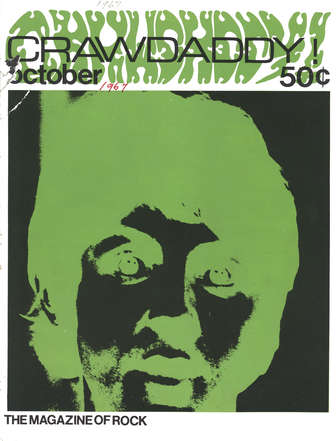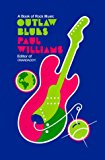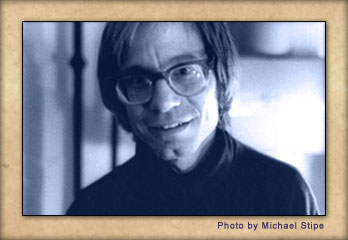Paul Williams changed my life. There are a few things I can look back on as life-altering: Jimi Hendrix, my wife, my kids and Paul Williams.
 Most people probably don’t know about Paul. He was one of the first serious rock journalists. He founded Crawdaddy! Magazine in 1966, right around the corner from me now at Swarthmore College. At it’s best, Crawdaddy! was the New Yorker of rock journalism next to Rolling Stone‘s Weekly Reader. Here’s the opening lines to the first typewritten issue:
Most people probably don’t know about Paul. He was one of the first serious rock journalists. He founded Crawdaddy! Magazine in 1966, right around the corner from me now at Swarthmore College. At it’s best, Crawdaddy! was the New Yorker of rock journalism next to Rolling Stone‘s Weekly Reader. Here’s the opening lines to the first typewritten issue:
You are looking at the first issue of a magazine of rock ‘n’ roll criticism. Crawdaddy! will feature neither pin-ups nor news briefs; the specialty of this magazine is intelligent writing about pop music. Billboard, Cash Box, etc., serve very well as trade news magazines; but their idea of a review is: “a hard-driving rhythm number that should spiral rapidly up the charts just as (previous hit by the same group) slides.” And the teen magazines are devoted to rock ‘n’ roll, but their idea of discussion is a string of superlatives below a fold-out photograph. Crawdaddy! believes that someone in the United States might be interested in what others have to say about the music they like. -from Crawdaddy.com
 I only got to read a few copies in its heyday, (although I’m reading them all now at Crawdaddy.com) but I devoured Outlaw Blues, a collection of Paul’s writing. His interview with producer Paul Rothschild about The Doors pulled back the shroud surrounding the art of record making.
I only got to read a few copies in its heyday, (although I’m reading them all now at Crawdaddy.com) but I devoured Outlaw Blues, a collection of Paul’s writing. His interview with producer Paul Rothschild about The Doors pulled back the shroud surrounding the art of record making.  His dissertation on The Jefferson Airplane‘s After Bathing at Baxter‘s was an acid revelation in every sense. He made me hear The Beach Boys anew, and I don’t mean Pet Sounds. It’s because of Paul Williams that I saw a way into music without being a musician, a way to be connected to the infinite sound. I don’t have Paul’s erudite mind or eloquent prose, but I have enjoyed the thrill of music more because he pointed the way. I heard music differently, more deeply and realized that Beach Boys surf music was as heavy, maybe heavier, than Sgt. Pepper’s Lonely Hearts Club Band.
His dissertation on The Jefferson Airplane‘s After Bathing at Baxter‘s was an acid revelation in every sense. He made me hear The Beach Boys anew, and I don’t mean Pet Sounds. It’s because of Paul Williams that I saw a way into music without being a musician, a way to be connected to the infinite sound. I don’t have Paul’s erudite mind or eloquent prose, but I have enjoyed the thrill of music more because he pointed the way. I heard music differently, more deeply and realized that Beach Boys surf music was as heavy, maybe heavier, than Sgt. Pepper’s Lonely Hearts Club Band.
I corresponded with Paul briefly in the early 1990s when he was writing a music newsletter. Nothing significant, but I did get to tell him the influence he had on me.  I was disheartened to read in a recent Rolling Stone that Paul had fallen ill. A bicycle accident in 1995 caused a head trauma that triggered early onset Alzheimers. He’s now under the care of his wife, folk artist Cindy Lee Berryhill, and a fund has been set up in his name. If you remember Paul Williams, if he changed your life, you can give a little payback on his website, Paulwilliams.com Or you can contact:
I was disheartened to read in a recent Rolling Stone that Paul had fallen ill. A bicycle accident in 1995 caused a head trauma that triggered early onset Alzheimers. He’s now under the care of his wife, folk artist Cindy Lee Berryhill, and a fund has been set up in his name. If you remember Paul Williams, if he changed your life, you can give a little payback on his website, Paulwilliams.com Or you can contact:
The Paul S. Williams Fund
paulswilliamsfund@hotmail.com
858-551-8823
John Diliberto ((( echoes )))
